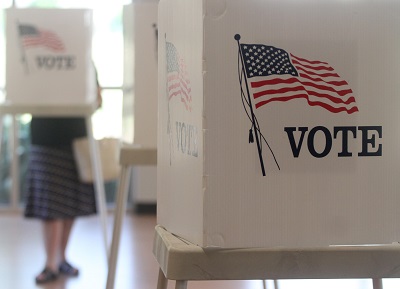New CEO Survey Finds Dramatic Workplace Changes in Response to COVID-19
The Bay Area can expect a dramatic shift in where employees work as shelter-in-place orders slowly lift and the economy reopens, according to a Bay Area Council survey of some of the region’s largest businesses that found almost a fifth of companies are planning to transition to full remote work policies and 89 percent are planning at least partial remote work polices. The survey of 123 CEOs and other top executives offered stark insights into a post-COVID 19 landscape.
Technology and the stay-at-home orders have forced and enabled large-scale, rapid adaption by the region’s employers. Today, of those still employed, only 5 percent work in a commercial office, another 5 percent work in another interior location like a distribution center, factory or retail location, and 6 percent work outside, doing delivery, utility maintenance or construction, for example. A staggering 84 percent of workers are doing their job at their kitchen table or other home location.
The transition back to normal will be slow. From the baseline of 5 percent today, executives cumulatively expect only 23 percent of their workers will go back to the office in Stage 2 of the reopening; 39 percent in Stage 3; and only 70 percent in Stage 4.
Rehiring of laid off workers will likely also be slow. Only 14% of employers have maintained their revenue, or can recover in a month. Sixty-one percent think it will take their company six months to a year to recover. Another 33 percent think it will take them two years to recover, and 13 percent think it will take more than two years. “Shutting down our economy has starved the virus but it’s also starving millions of workers and businesses of the jobs and income they need to pay salaries, pay rent, buy food and so much more,” said Jim Wunderman, President and CEO of the Bay Area Council. “As the data shows California making continuing progress in flattening the curve and building our testing and healthcare system capacity, we must start accelerating the reopening of our economy now. The business community has been extremely supportive of the strong measures by elected leaders and public health officials to close down our economy and stem the pandemic, and we must also turn our attention to flattening the curve of economic damage we’re experiencing.”
Read the full survey results>>
Despite the financial pain, CEOs and other top executives support Bay Area county actions to date, with 77 percent of executives saying they either strongly support (45%) and somewhat support (32%) the county measures. That said pressure is building for them, with further layoffs required the longer the shelter-in-place orders stand. The survey found 62 percent of executives want to see the SIP orders lifted sometime in the next month while 25 percent prefer the orders remain in place for another two months.
The spirit of shared recovery seems strong. Asked if they would be willing to stagger work start times to allow for physical distancing on public transit, 91 percent of CEOs and executives said yes.
“If there’s any silver lining in all of this, the shift to more remote working practices might actually help make a dent in the Bay Area’s horrific traffic,” Wunderman said.
That said, executives with multiple workplaces in the Bay Area are being challenged by the once unified, but now fracturing regional standards. One CEO wrote, “We are pulling our hair out with all the different requirements that can vary county by county. It would be more efficient to have one universal set of rules.”
Offices will be different when workers return. Sixty-six percent of companies are planning to alternate or rotate employee work schedules during the week to reduce numbers coming to physical offices. Seventy-eight percent will move employees or workstations for the purpose of social distancing. Most employers (69 percent) will require employees to wear personal protective equipment, and 73 percent will offer visitors and employees free masks, 46 percent gloves, and 90 percent will give hand sanitizers out.
The survey was completed May 13-14, 2020 by 123 Bay Area Council member companies representing a wide array of businesses and industries with workforces ranging in size from two to more than 10,000.





